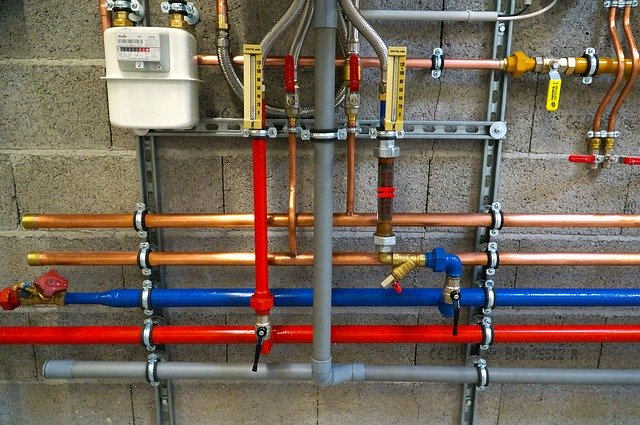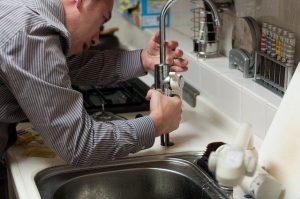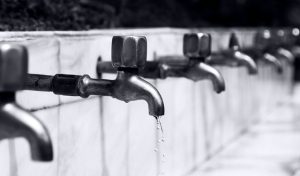A home’s plumbing is vital to the comfort of the people who live in the property. But plumbing often malfunctions and needs maintenance and repair. When this happens and the property is a rental, who is responsible for fixing the plumbing systems? Is it the property owner or the tenants who live in it?
This question has been the subject of several legal disputes between owners and renters. Failing to resolve it at the onset of a landlord-tenant relationship can lead to acrimony in the future.
Plumbing maintenance and repair is costly. After a landlord has spent thousands of dollars to install good plumbing in a rental, they want to be sure it will be taken care of. They recognize that without consequences for bad behavior, tenants have no incentive to look after a property.
Property owners ask “how do I know that the plumbing in my property is protected at all times, given that I won’t always be there to ensure it?” This is why landlords prefer that tenants take responsibility for maintaining a home’s plumbing.
Conversely, tenants argue that landlords own the property and have a greater stake in it. If tenants take responsibility for plumbing maintenance, what’s to stop landlords from failing to provide good plumbing? Furthermore, asking tenants to maintain the plumbing is not right because tenants cannot take plumbing with them.
This means a tenant will spend their money to keep a landlord’s property in good shape, while the owner keeps earning rental income from that tenant and subsequent tenants. That cannot be fair.
How does the law resolve this dilemma?
Landlord’s Responsibilities
The primary responsibility for a home’s plumbing systems lies with the property owner. This is contained in the landlord’s implied warranty of habitability. When landlords rent their property to tenants, they automatically guarantee that they have done all to make the property livable.
It is assumed that the home meets the necessary standards of safety and provides everything needed for basic living.
Under this warranty, the landlord ensures that, among other things, the home provides and keeps providing the following
- Potable water
- Warm water
- Heating in cold weather
- Working electricity
- Adequate ventilation systems
- Functioning bathroom and toilets
- Good sanitary conditions
This makes it landlords’ responsibility to ensure a home has adequate plumbing. But based on the principle of implied warranty of habitability, owners must keep providing adequate plumbing for as long as a tenant lives in the property.
Therefore, landlords are also responsible for maintaining the plumbing in a functional state. Owner’s role in a property’s plumbing can be summed up as;
- The owner must ensure that before a property is turned over to tenants, it has a functional toilet; functional shower or tub; and cold & hot running water. Furthermore, these should be working to a tenant’s satisfaction at the time of tenant move-in.
- The owner is further responsible to maintain these components in good working order for the duration of a tenant’s stay. Owners must undertake repairs at no expense to the tenant, as long as the damage is the result of normal wear and tear. Repairs covered in the rule include, but are not limited to, leaks, broken pipes, clogged drains, damaged appliances, etc. Tenants are only obligated to report all plumbing problems to the landlord in a timely fashion.
Does this mean all plumbing repairs are the owner’s responsibility as long as tenants report it? No, landlords are only responsible for damage that results from normal wear and tear.
Tenant’s Responsibilities
Everything that belongs to a tenant is the tenant’s responsibility. Additionally, every problem that occurs as a result of a tenant’s behavior is the tenant’s responsibility. Tenants have the following responsibilities;
- If a home’s plumbing is damaged due to tenants’ actions or inactions, the tenant is liable. In that case, the landlord will do the necessary repairs but the tenant will pay for them.
- Any plumbing damage that is caused by property belonging to the tenant is the tenant’s responsibility. Such as when a tenant’s washing machine damages the plumbing.
- Tenants are responsible for reporting problems with a home’s plumbing to the landlord, as soon as they notice it. If they fail to do this, the tenant will be partly responsible for repairing the damage.
- Finally, tenants are responsible for protecting their property from damage if the plumbing system malfunctions. For instance, if tenants fail to move their belongings out of the way of a water leak, the landlord will not be responsible for the resulting damage.
These rules split the responsibility for plumbing maintenance evenly between landlords and tenants. But to ensure the rules are followed, landlords should make them a part of the lease agreement. And to reduce the risk of conflict with tenants, owners should educate them on how best to care for the home’s plumbing systems.
Guest Article by: Avalon Property Management





Recent Comments